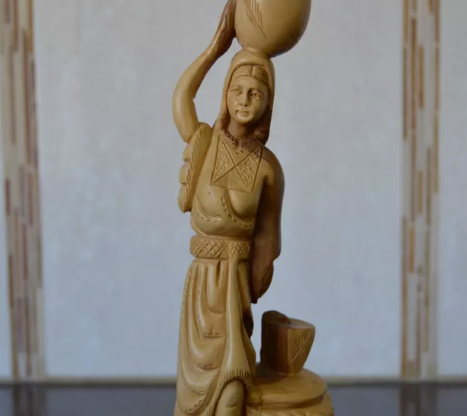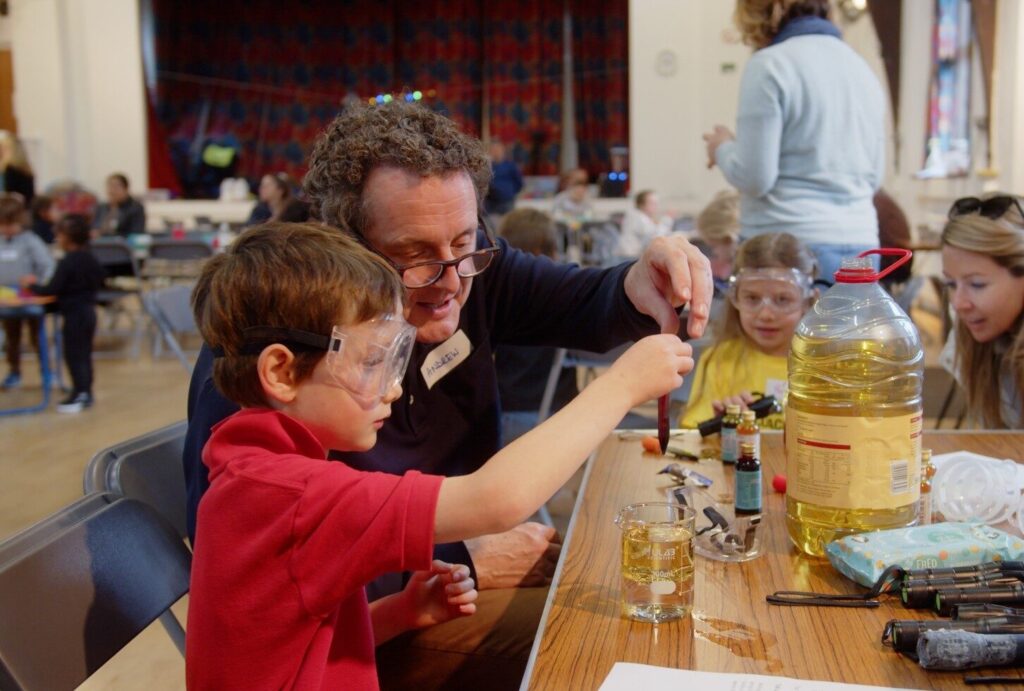A very provocative and yet affirming read for Messy Church leaders is Christine Pohl’s Making Room – Recovering Hospitality as a Christian Tradition (Eerdmans, 1999) (recommended to me by Alison Wilkinson from Durham, for which many thanks). As I write I am feeling peculiarly like a stranger and a sojourner as my flight has been delayed three hours and all the passengers for our flight are marooned in the departures lounge of Southampton airport. Hospitality here consists merely of a supply of seats and an availability of food and booze to buy.
Pohl writes a rich story of hospitality, based on her research in communities that practise it full-time, like L’Arche, L’Abri and The Catholic Worker. There are so many resonances between these amazing, wholehearted expressions of Christian hospitality as a lifestyle and what we try to do in our humble and bumbling ways in Messy Church, that it’s worth considering some of the points she makes. I think this puts the hospitality of Messy Church in a theological context, which can only be inspiring and affirming.
Hospitality is at its most powerful and effective when it’s practised in an intimate yet public space: with the intimacy and acceptance that comes in personal relationships, yet with the challenge and bigger picture that comes from a wider community such as a church. We need to create or find ‘threshold spaces’ which are the equivalent of the gathering by the city gate in an ancient community: a places where a stranger’s need can be recognised.
Hospitality is all about providing a safe space for the most vulnerable in our communities: those who have lost their identity because ties with homes or families or structures have been torn apart.
While hospitality has been taken over by institutions like hospitals, hotels (‘the hospitality industry’), hospices and social work, there is more need than ever to provide a non-institutional welcome and relationships that are for the sake of the person not because the ‘host’ is being paid to welcome them.
Hospitality is all about an attitude of heart, not about how many material resources we can lavish on people. It’s closely connected with Matthew 25 and seeing Christ in the stranger: ‘I was a stranger and you welcomed me in’ (v. 35, NIV).
When hospitality is practised properly, it’s mutual: hosts gain as much as guests, and both sides give and take. True hospitality helps a vulnerable guest find their true identity as a human being, it doesn’t put them in an uncomfortably inferior position by denying them the right to contribute to a community. It recognises the gifts of the stranger and celebrates them.
There is always a danger and balance to be struck in welcoming strangers: a danger of welcoming people for our own advantage – to make us feel good, to gain spiritual Brownie points, to ‘convert’ people, which may be no better than the medieval practice of entertaining important guests in order to gain material advantage from them. Hospitality can be abused, too, and practitioners have to put in place safeguards: does the stranger actively preach against the doctrine of the community, or is s/he unnecessarily idle?
Characteristics of hospitable places are: comfortable, lived-in; settings in which people are flourishing; places which are cared for, where sanctuary and shelter can be found; which have a slower pace of life, even if the people are busy; where life is celebrated but where there is room for brokenness and disappointments; where faith and hospitality are seen as natural, not forced; and they are enhanced by an appreciation of life – perhaps by having good food or flowers from a garden.
Eating together is a key part of hospitality and traditionally is about equality and can be a way of establishing community identity. It is important for community members to sit and eat, not just to serve our guests, even though sharing the meal rather than standing apart may be less comfortable. Christian hospitality should not be a case of ‘come to our table / come to our church’ but an understanding that it is God’s table, God’s church and we are all his guests.
You may also like

Woman at the Well
3rd Nov 2024
Seaside Sojourn
21st Oct 2024It seems that I always get booked to deliver in-person training at seaside locations. This trend continued last weekend, as I headed off to the coastal village of Seaton, Devon.

Our Survey Said…
7th Oct 2024Back in February 2024, Church of England kindly sponsored a survey, completed by 330 Messy Church leaders. This is what we...

Storytelling from within God’s Story.
10th Sep 2024Hi Messy Friends! My name is Andrew McDonough. I live in Australia, draw sheep and tell stories. It began long long ago w...

